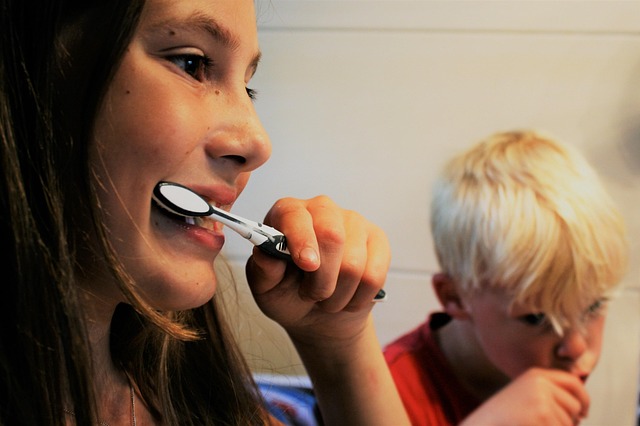Dental Implants in the US: Evaluating Turkish Clinics
Dental implants are a significant decision for individuals seeking restorative dental solutions. Turkish clinics operating in the US provide a platform to assess various treatment options, their effectiveness, and associated costs. Patients can also gain insights into the stages of post-operative care, ensuring informed choices are made regarding their dental health.

The decision to pursue dental implants involves careful consideration of various factors, from the type of implant material to the expertise of the dental professional performing the procedure. While dental implants are widely available in the United States, the cost factor has led many patients to investigate alternatives abroad. Turkey has emerged as a notable destination for dental tourism, attracting patients with competitive pricing and modern facilities. However, evaluating foreign clinics requires thorough research and an understanding of both the benefits and potential challenges involved.
Understanding the Benefits of Dental Implants
Dental implants serve as permanent replacements for missing teeth, consisting of titanium posts surgically placed into the jawbone to act as artificial tooth roots. Unlike dentures or bridges, implants fuse with the bone through a process called osseointegration, providing stability and preventing bone loss that typically occurs after tooth loss. The benefits extend beyond aesthetics; implants restore full chewing function, maintain facial structure, and can last decades with proper care. Modern implant technology has advanced significantly, offering various options including single-tooth implants, implant-supported bridges, and full-arch restorations. The success rate for dental implants is high, typically ranging from 95 to 98 percent when performed by qualified professionals and when patients follow appropriate aftercare protocols.
Evaluating Treatment Options for Dental Implants
When considering dental implant treatment, patients face multiple decisions regarding implant systems, materials, and procedural approaches. In the United States, FDA-approved implant brands such as Straumann, Nobel Biocare, and Zimmer Biomet are commonly used and have extensive clinical research supporting their longevity. Turkish clinics often use these same international brands alongside European-manufactured alternatives. The evaluation process should include verifying the specific implant brand used, reviewing the dentist’s credentials and experience, examining before-and-after case studies, and understanding the clinic’s infection control protocols. Many Turkish dental clinics cater specifically to international patients, offering comprehensive packages that include consultations, imaging, surgery, temporary crowns, and follow-up appointments. Patients should request detailed treatment plans that specify the implant brand, type of crown material, and the qualifications of the surgical team. Accreditation from international organizations and memberships in professional dental associations can provide additional assurance of quality standards.
Cost Considerations and Pricing Comparisons
The primary motivation for many patients considering Turkish clinics is the substantial cost difference compared to United States pricing. Understanding these financial factors is essential for making an informed decision.
| Service | US Provider Cost | Turkish Clinic Cost | Notes |
|---|---|---|---|
| Single Implant with Crown | $3,000 - $6,000 | $800 - $1,500 | Includes implant post, abutment, and crown |
| Full Arch Restoration (All-on-4) | $20,000 - $40,000 | $5,000 - $10,000 | Per arch, includes surgery and prosthesis |
| Bone Grafting (if needed) | $500 - $3,000 | $200 - $800 | Additional procedure cost |
| Consultation and Imaging | $100 - $300 | Often included | CT scans and planning |
Prices, rates, or cost estimates mentioned in this article are based on the latest available information but may change over time. Independent research is advised before making financial decisions.
When calculating total costs, patients must factor in travel expenses, accommodation, and potential follow-up visits. Some Turkish clinics partner with local hotels to offer package deals. Additionally, patients should verify whether the quoted price includes all components of the implant system and whether warranties are provided. While the cost savings can be significant, typically 50 to 70 percent lower than US prices, patients should ensure they are comparing equivalent quality and not sacrificing safety or materials for lower prices.
Post-Operative Care and Recovery Expectations
Successful dental implant outcomes depend heavily on proper post-operative care and adherence to recovery protocols. Immediately following implant surgery, patients typically experience some swelling, minor bleeding, and discomfort, which can be managed with prescribed medications. The initial healing period lasts about 7 to 10 days, during which patients should follow a soft food diet and maintain meticulous oral hygiene while avoiding the surgical site. The osseointegration process, where the implant fuses with the jawbone, takes approximately 3 to 6 months. During this period, patients may wear temporary crowns or prosthetics. One challenge with receiving treatment in Turkey is the geographic distance for follow-up care. Patients should establish a relationship with a local dentist in the United States who can monitor healing and address any complications. Reputable Turkish clinics typically provide detailed post-operative instructions, remain available for remote consultations, and offer warranties that cover implant failure within a specified timeframe. Long-term maintenance includes regular dental check-ups, professional cleanings, and proper home care to prevent peri-implantitis, an infection that can compromise implant stability.
Quality and Safety Considerations
Evaluating the quality and safety standards of Turkish dental clinics requires diligent research. Turkey’s dental tourism industry has grown rapidly, with many clinics in major cities like Istanbul, Ankara, and Antalya investing in state-of-the-art technology and hiring internationally trained dentists. However, the industry is not uniformly regulated, and quality can vary significantly between providers. Patients should verify that clinics are accredited by the Turkish Dental Association or hold international certifications such as ISO standards. Reviewing patient testimonials, particularly from international patients, can provide insights into the patient experience and outcomes. Language barriers can pose challenges, so confirming that the clinic has English-speaking staff is important. Additionally, understanding the legal recourse available in case of complications or malpractice is crucial, as pursuing claims internationally can be complex and costly. Patients should also confirm that the clinic follows strict sterilization protocols and uses single-use instruments where appropriate to minimize infection risks.
Making an Informed Decision
Choosing between domestic and international dental implant treatment involves weighing multiple factors beyond cost alone. While Turkish clinics can offer significant savings, patients must consider the logistical challenges of traveling for medical care, the potential need for multiple trips, and the limitations of long-distance follow-up care. Consulting with a local dentist in the United States before making a decision can provide valuable perspective and help identify any pre-existing conditions that might complicate treatment abroad. Patients with complex medical histories, compromised immune systems, or significant bone loss may be better served by receiving treatment locally where comprehensive follow-up is more accessible. For those who decide to pursue treatment in Turkey, thorough preparation is essential: obtain detailed written treatment plans, verify all costs in advance, understand warranty terms, and establish a follow-up care plan with a local provider. The decision should be based on a comprehensive evaluation of quality, safety, convenience, and cost, ensuring that the chosen path aligns with individual health needs and circumstances.
This article is for informational purposes only and should not be considered medical advice. Please consult a qualified healthcare professional for personalized guidance and treatment.




